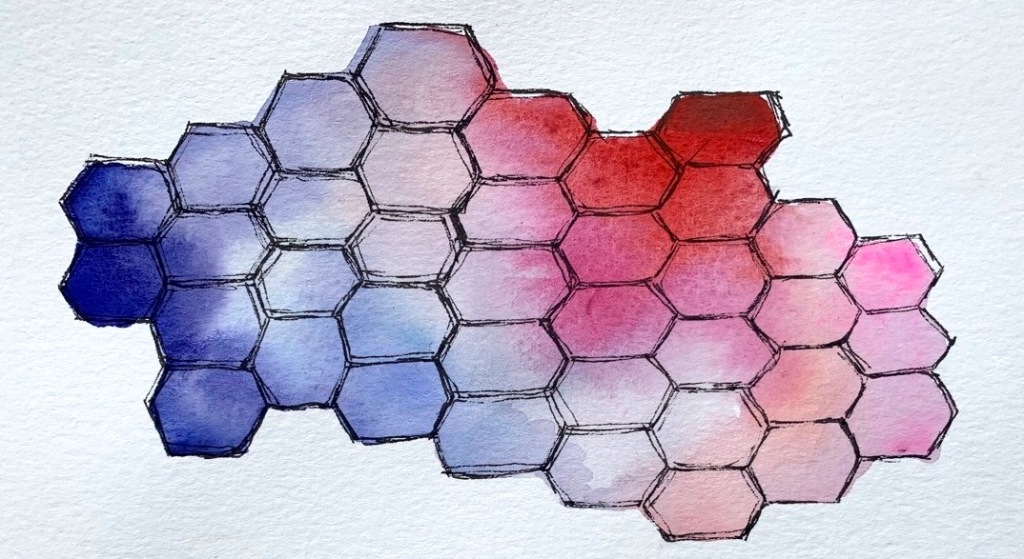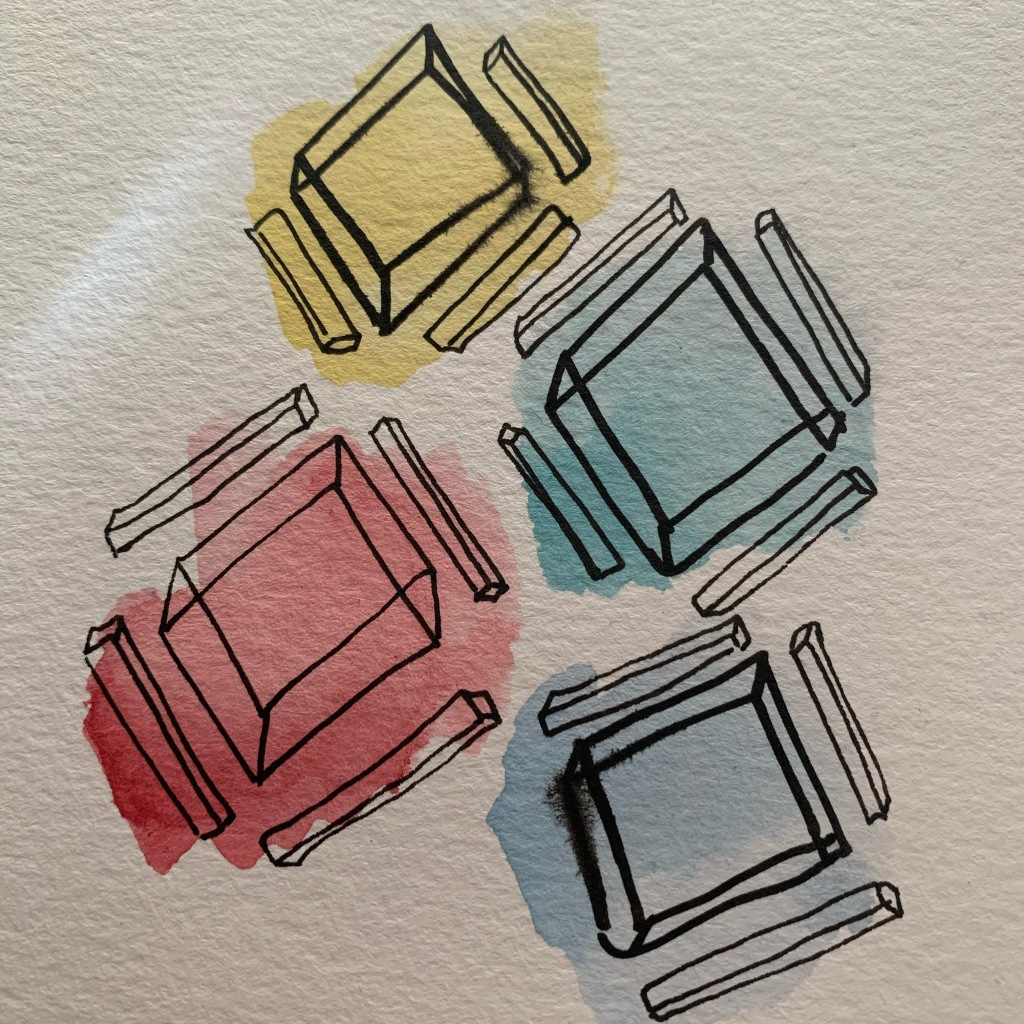
Imagine the library (“the universe (which others call the Library)”) that Borges thought of — infinite, and containing everything that you might want to know, in the way that you can know things from books. Imagine that your brain has been memory wiped — you don’t know what you know but you do know something about who you are because you have your body still, and you experience the world that way. Maybe that body you have is supported by some kind of biological exo-suit “for satisfying one’s physical necessities.”* Whatever is the optimal – that’s what you feel. You’re in a chemically induced state of bliss. And all you have to do — all you’ve somehow been instructed to do – is read. You can read whatever you want. You don’t know anything. Where do you start?
Borges’ “The Library of Babel” starts by building an “indefinite, perhaps infinite number of hexagonal galleries.” The Library. The universe. This universe is infinitely recursive in its hexagonal shape. As I was drawing them, it occurred to me that hexagons don’t come naturally to my hand. (I had a “cubist” period recently, by which I mean I kept finding myself drawing and painting cubes). What’s interesting about drawing a hexagon (try it!) is that one hexagon invites another (“each letter influences the next”) — it’s hard to draw one without wanting to draw the next, which takes two of its lines from the first. This is not at all like my cubes, which stood alone (they, too, suggested the next in their own way — much more a result of my own desire to repeat). The hexagon, though: it wants more hexagons. Hexagons have a sci-fi feel — a special kind of texture, a flexible material. But the hexagon doesn’t belong to the future, at least, not only so. It’s already here, and has been here for a long time — in the shapes made by honey bees. (“Idealists argue that the hexagonal rooms are the necessary shape of absolute space, or at least our perception of space. They argue that a triangular or pentagonal chamber is inconceivable.”)
Borges’ library contains everything (totality, wholeness, perfection, completeness), including things that are not true and which cannot be distinguished from the truth. At the same time, this recursivity is not as endlessly expansive as it might seem. Even though Borges provokes a desire in us — a hunger of a kind — for an answer, an end, and a limit in a seemingly limitless space, he also provides a number of imaginative boundaries. Even though there are children, young men, old men, fathers (the writer recalls an experience related to him by his father; the young worship the written word; the old try to mirror the library algorithm in secret) there are no not-men. The library is supposed to be able to produce all things in all languages, and yet the examples of totality are gnostic texts, commentaries, and the “lost books of Tacitus” — not books by, or even about, aliens or trees or deep sea creatures. The English word “book” (like Latin liber and codex) contains within a secret indication of its organic origin. But in the Library, the book itself is pure textuality.
If I am in my own library with my exo-suit but without my memory, I don’t know where I will go.
*As far as I can tell, Borges only really seems to mean “to go to the bathroom” with this phrase: over the course of the story he refers to “water closets for the seated librarian”, and “latrines” where old men would secretly try to replicate the library’s process with forbidden dice. Although he speaks of joy, depression, disease — he never in this story mentions food, drink, nature, exercise (except in the form of travel), sex. He does, however, speak of light in terms which imply organic growth but ultimately deny satiety: “Light is provided by certain spherical fruits that bear the name ‘bulbs.’ There are two of these bulbs in each hexagon, set crosswise. The light they give is insufficient, and unceasing.”

One thought on “imagine yourself in the library”
Comments are closed.